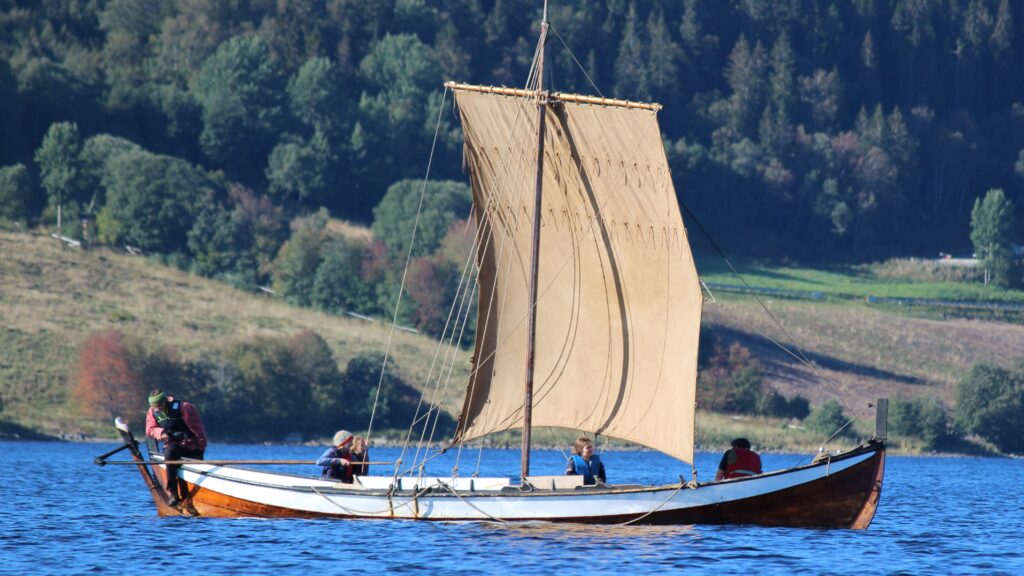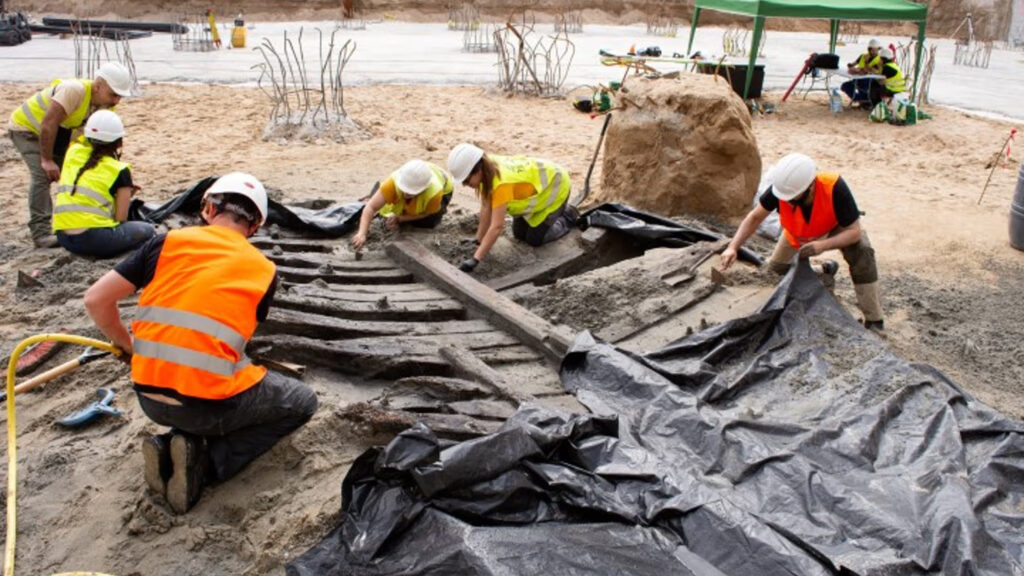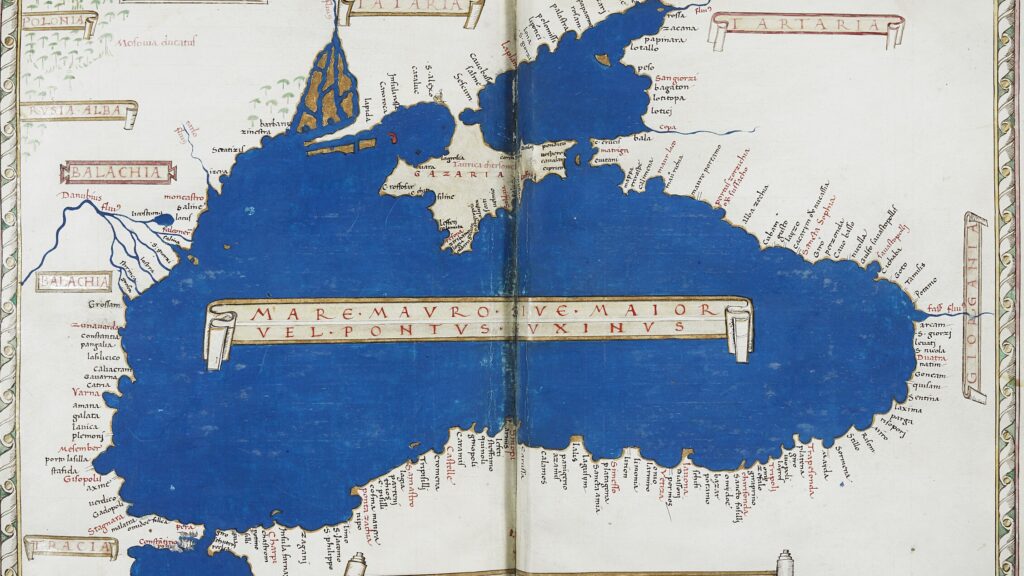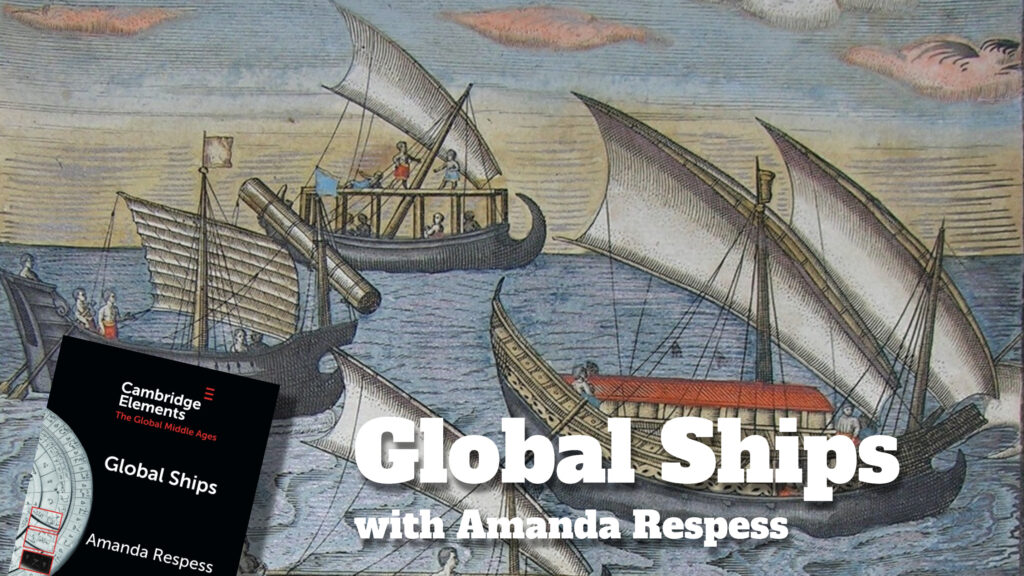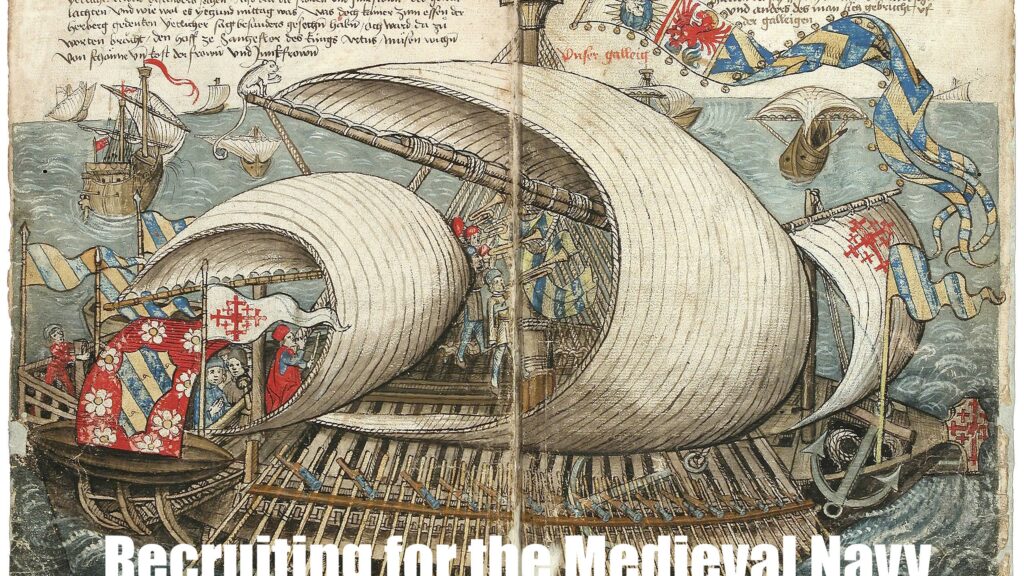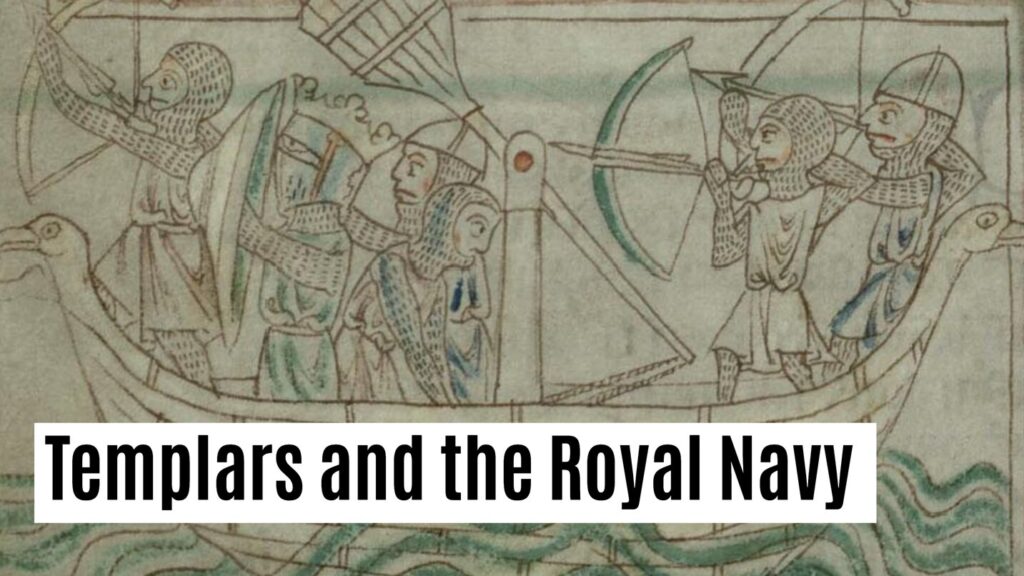New Medieval Books: Global Ships
Global Ships: Seafaring, Shipwrecks, and Boatbuilding in the Global Middle Ages By Amanda Respess Cambridge University Press ISBN: 9781009343398 From the sturdy cogs…
New Medieval Books: Discovered but Forgotten
Situated in the Indian Ocean, the Maldives played a key role in medieval trade networks. This book explores Chinese engagement with the islands, focusing on a two-century period during which they became an important outpost for China’s expanding maritime influence.
New Research Reveals Vikings Sailed Farther from Shore Than Previously Thought
New research shows that Vikings sailed farther from land than previously thought, using a network of offshore harbours and navigating by myths and mental maps.
Medieval Shipwreck Uncovered Beneath Barcelona
Archaeologists in Barcelona have uncovered a 15th–16th century shipwreck beneath the city, offering new insights into medieval shipbuilding and maritime trade in the western Mediterranean.
Medieval Sailors Avoided the Black Sea in Winter, Study Finds
New research by historian Andrei Mirea is shedding light on the challenges of winter navigation in the Black Sea during the Middle Ages. Published in the International Journal of Maritime History, his study reveals that this inland sea was largely impassable during the colder months.
Global Ships with Amanda Respess
This week on The Medieval Podcast, Danièle speaks with Amanda Respess about ships and shipbuilding in the medieval world, what we know about early global trade routes, and the fascinating bits of archaeology we’re still finding under the sea.
Medieval Shipwreck Discovered in Sweden Could Be Oldest of Its Kind
Maritime archaeologists have uncovered what may be the oldest known carvel-built ship from the Nordic region. The wreck, found in Landfjärden near Häringe, south of Stockholm, dates back to the late Middle Ages and offers new insights into the evolution of shipbuilding in northern Europe.
How Medieval Navies Recruited Sailors Who Didn’t Want to Sail
Medieval navies struggled to find willing sailors, often resorting to bribes, deception, and even forced service to fill their ranks. From staged sea battles to promises of silver and spoils, recruiters used every trick in the book to turn reluctant men into seafarers.
When the Atlantic Was Full of Islands: Mythical Lands West of Medieval Europe
Discover a time when the Atlantic Ocean was thought to be dotted with mysterious islands, from the elusive Hy Brazil to Saint Brendan’s legendary paradise. These mythical lands, born of medieval imagination and storytelling, inspired explorers and shaped the Norse quest for the unknown.
The Perils of the Sea: A Tenth-Century Shipwreck Tale
What would you do if your life depended on surviving a tempestuous sea? For mariners of the Middle Ages, shipwrecks were not just…
Tudor Sailors’ Bones Reveal Link Between Handedness and Bone Chemistry
A groundbreaking study on the skeletal remains from the 16th-century English warship Mary Rose suggests that a person’s dominant hand could influence changes in collarbone chemistry as they age.
New Medieval Books: Empire in the Western Ocean
This book chronicles the rise of the Ming Dynasty and their creation of a formidable naval power that extended far beyond China’s shores, reaching deep into the Indian Ocean.
Medieval Shipwreck Unveils England’s Trade Secrets
Maritime archaeologists at Bournemouth University have analyzed a 13th-century shipwreck found off the coast of Dorset in southern England, shedding light on the trade networks that supported the construction and decoration of many of England’s medieval religious monuments.
Medieval Fish with Richard Hoffmann
This week on The Medieval Podcast, Danièle speaks with Richard Hoffmann about what people were eating, how they caught it, and how fish farming evolved over time.
Sunken medieval warship continues to offer up its secrets
In 1495, the Danish warship Gribshunden sank off the coast of Sweden. In recent years, researchers have dived to explore the wreck and have made several important discoveries.
The Infamous Military Campaign of 1379
The destruction of an English fleet led by Sir John Arundel in 1379 is reported by most chroniclers to be an unfortunate accident. However, if you read what Thomas Walsingham has to say about what happened, you get a far more horrific version of events.
Crusader Fleets: A Missing Ingredient
We tend to associate the Crusaders with all the bold, visually striking, images of medieval warfare. Charging knights and crossbowmen. Castles and siege towers. What we do not often think of is sailors and fleets
Up to 50,000 coins from the 4th century discovered off of Sardinia
Archaeologists exploring the waters off the Italian island of Sardinia have discovered a cache of between 30,000 and 50,000 coins dating back to the first half of the 4th century.
Violence as Global Practice in the Early Medieval Western Mediterranean
I challenge the assumption that violence involving Muslims and Christians was necessarily religious. Moreover, I propose that normative texts concerning maritime violence impede rather than illuminate our understanding of that violence, particularly in cases adjacent to religious rhetoric.
Templars and the Royal Navy
The Templars played an important, but almost unknown, role in the formation of the English navy under King John and Henry III.
A Journey to the Far North in the Middle Ages
The name Ohthere does not usually rank among the famous explorers of the Middle Ages, such as Leif Erikson or Marco Polo. However, his exploits are very impressive, for he would sail into the Arctic Circle over eleven hundred years ago.
14th-century cannon discovered off Swedish coast
An international research team has confirmed that a cannon discovered off Sweden’s west coast dates back to the 14th century. It might be Europe’s oldest shipboard cannon.
The Battle of Sluys (1340)
In the early stages of the Hundred Years’ War, the English and French naval forces fight a battle just off the coast of…
New Medieval Books: The Cambridge History of the Pacific Ocean
The first part of a two-volume set, this book covers the medieval history of the Pacific Ocean.
Two medieval shipwrecks discovered in Sweden
The remains of two medieval merchant vessels, known as cogs, were discovered over the summer in western Sweden during an archaeological excavation. New evidence reveals that the ships were built outside of Scandinavia in the mid-14th century.


